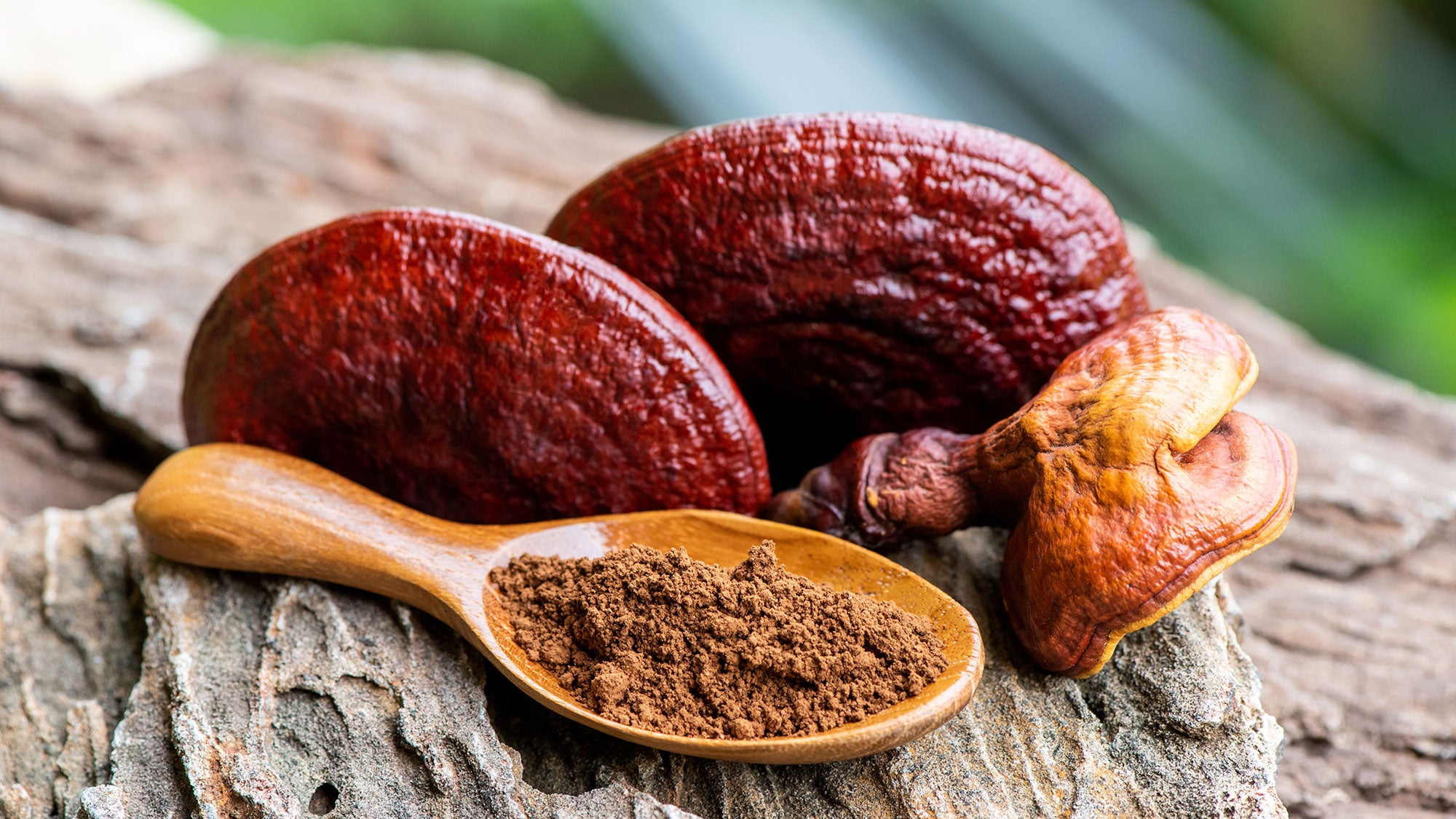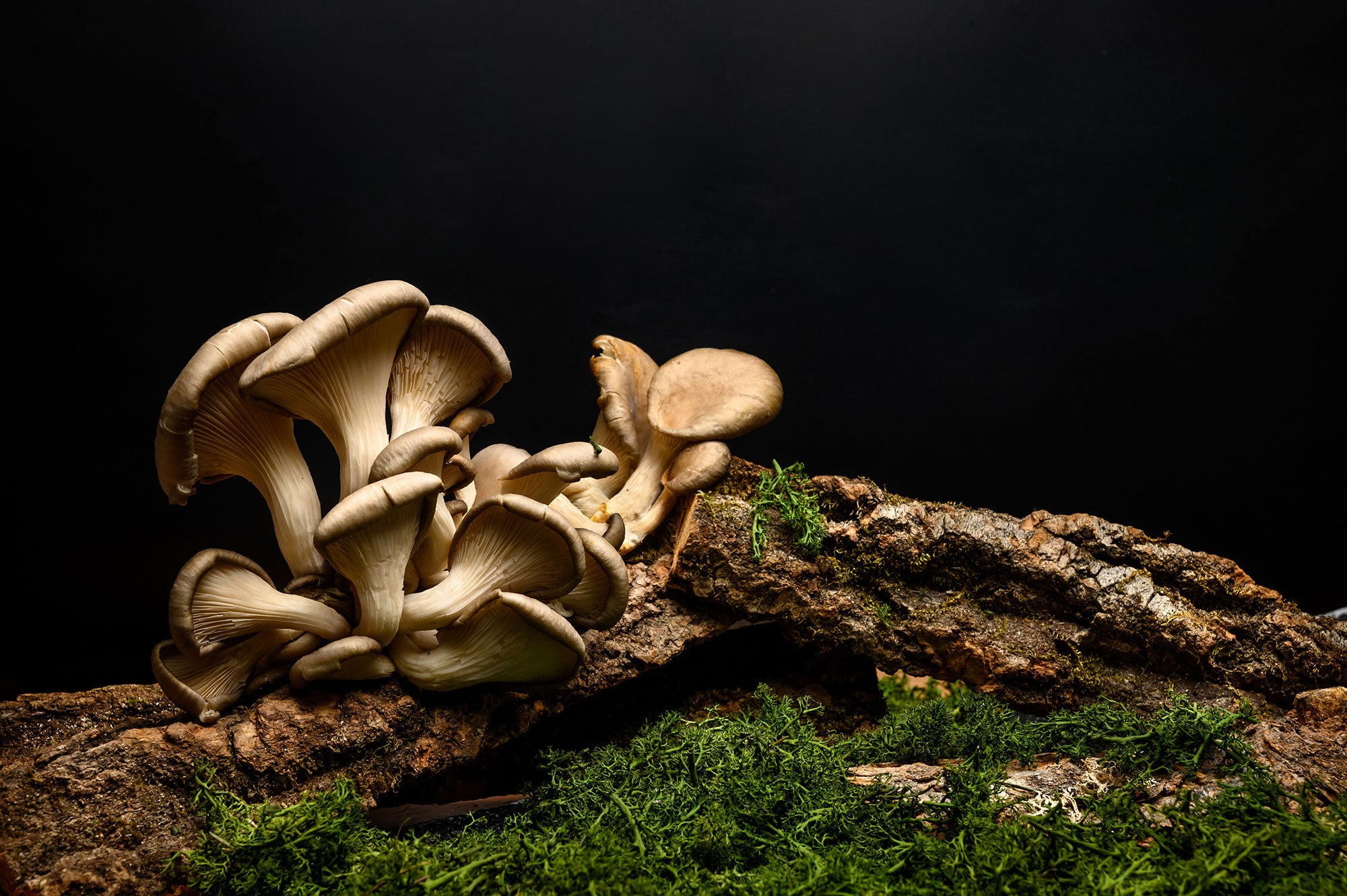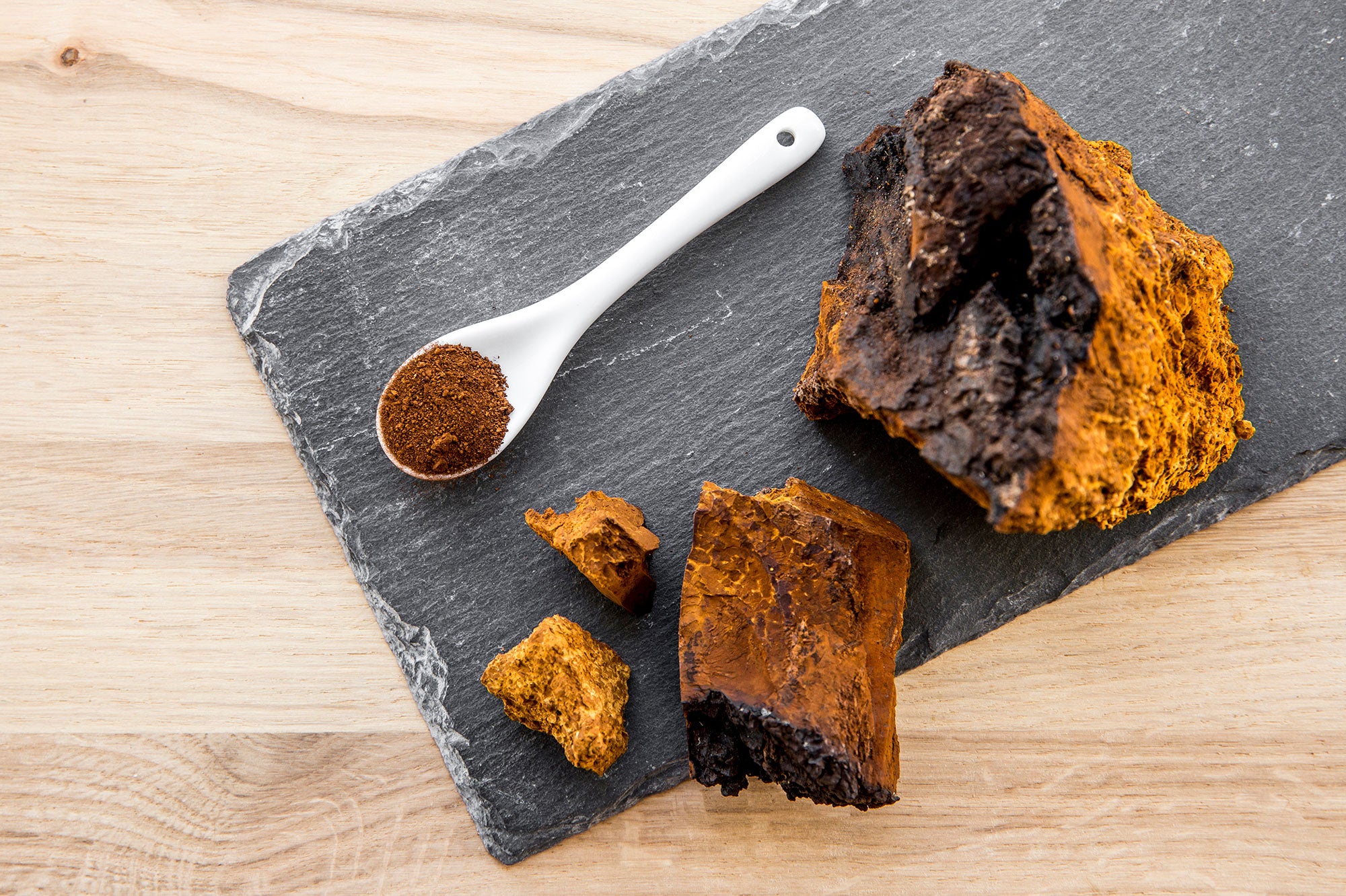When you hear "the king of mushrooms," you know that there's something special about the Reishi mushroom. And while not all mushrooms have such great benefits, this mushroom is known for its mood-boosting, immune-strengthening, and cell-regeneration potential.
Orange to reddish-brown in color and fun-shaped, the Reishi mushroom (Ganoderma Lucidum) is a rare find and was reserved for royalty in the Asian cultures many years ago. Today, the Reishi mushroom is commercially grown and sold in different products such as energy bars, beauty products, hot cocoa, tinctures, tea, capsules, and powder supplements.
So, why are these mushrooms suddenly sold everywhere?
They're a great supplement that stimulates liver function and the immune system producing much-needed anti-inflammatory properties. Also, they're known to inhibit tumor growth.
Keep reading to learn more about what research says about Reishi mushrooms, the benefits, dosage, and more.
What are Reishi Mushrooms?
The Reishi mushroom is a fungus that thrives in the hot and humid parts of Asia. It’s also known as lingzhi or Ganoderma lucidum. For thousands of years, the fungus has played a crucial role in Eastern medicine.
Within these mushrooms, you'll find molecules such as peptidoglycans, polysaccharides, and triterpenoids responsible for the mushroom's health benefits. While you may eat the mushrooms fresh, you may also opt to use the powdered form or extracts with specific molecules, such as capsules.
Chaga Vs. Reishi
Whether you wish to choose one over the other or try both, these mushrooms have numerous advantages. Chaga is an anti-aging, anti-inflammatory, and potent antioxidant.
On the other hand, Reishi mushrooms boost immunity, balance mood, and are a stress reliever. If you wish to grow your Reishi mushrooms, you can take advantage of our ready to fruit grow kit for your tinctures and teas.
Reishi Mushroom Health Benefits
Below are some of the scientifically studied health benefits of Reishi mushrooms:
Boosting The Immune System
One of the most critical effects of this mushroom is its ability to boost the immune system. While it might not be apparent, Ganoderma lucidum affects the white blood cell genes. Additionally, some forms of Ganoderma lucidum may alter the white blood cell inflammation pathways.
Reishi mushrooms help fight cancer and infections, and the immune-boosting ability is particularly evident in ill patients.
Anti-Cancer Potential
Many people appreciate this fungus due to its anti-cancer potential. In addition, some studies show that it can cause the death of cancer cells. In a specific study, around 59% of 4000 breast cancer survivors had consumed Ganoderma lucidum.
Research revealed that treatment using Reishi mushrooms for one year decreased the size and number of tumors in large intestines. However, more Reishi mushroom treatment information is necessary before certification as part of the standard cancer therapy.
May Fight Depression And Fatigue
Reishi mushrooms improve the quality of life by reducing depression and fatigue. Studies show that Reishi may decrease anxiety and irritability, headaches, dizziness, pains, and aches.
Heart Health
In a 12-week study, some people showed an increase in good cholesterol and decreased triglycerides. However, the case might not be the same in healthy adults who showed no improvement in reducing factors contributing to heart diseases.
Controlling Blood Sugar
Several studies indicate that some of the molecules found in Reishi mushrooms decrease blood sugar levels. However, most research outcomes are yet to support this benefit. Therefore, there's a need for more research to substantiate these claims.
Lower Blood Pressure
Certain compounds in Reishi mushrooms may help lower blood pressure levels, according to a study in 2014. They could lower your blood pressure to deadly levels. Thus, if you're taking any blood pressure medication, consult your doctor before taking any supplements.
Improve Liver Function
These mushroom spores improve the liver's ability to rid the body of toxins by promoting the regeneration of liver cells. A healthy liver helps you manage other conditions such as allergies and blood sugar levels.
Antihistamine Effects
Some studies indicate that the Reishi mushrooms may have anti-allergy fighting properties and improve the body's oxygen supply.
Additional Benefits: Reishi Mushroom Benefits For Skin
These are some skin benefits you might enjoy when using Reishi mushrooms. But first, what are the specific properties in Reishi mushrooms that benefit your skin?
- Adaptogens: Help the body's natural response to anxiety and stress.
- Beta-glucans: They attract water into your skin by producing antioxidant glucose and protecting the skin from damage caused by oxidizing.
- Polysaccharides: Support the body's response to inflammation and its natural immune functions.
- Mycelium and fruiting bodies: Offer nutrients that help the body improve its immune functions.
- Peptidoglycans: Produces amino acids that help the skin produce healthy antimicrobial peptides.
- Lysine: Helps reinforce skin support and elasticity.
- Leucine: Promotes the skin's natural healing process and reduces fine lines.
- Amino acids: Promote skin firming, appearance, overall health, and texture and actively protects against free radicals.
Reishi Mushroom Dosage
Unlike other food supplements, dosage may vary as far as Reishi mushrooms are concerned. The highest doses are in people who consume the mushrooms themselves. In such cases, amounts range between 25 grams to 100 grams, depending on the mushroom size.
Because suggested doses may vary, it's crucial to know the correct amount given the form you're taking the Reishi mushroom. Health Canada, however, does have guidelines on Reshi dosage based on different methods of preparation. These recommendations are as follows:
|
Method of Preparation |
Uses or Purpose |
Doses (grams)/day |
|
Dry, Powder, Non-Standardized Ethanolic Extracts (Dry extract, Tincture, Fluid Extract) |
Source of antioxidants/fungal polysaccharides |
Not to exceed 6 g of dried cultured mycelium/fruiting body/mycelium per day |
|
Standardized Ethanolic Extracts (Dry extract, Tincture, Fluid Extract) |
Source of antioxidants/fungal polysaccharides |
Not to exceed 6 g of dried cultured mycelium/fruiting body/mycelium per day and 40 % polysaccharides |
|
Decoction |
Source of antioxidants/fungal polysaccharides |
Not to exceed 15 g of dried cultured mycelium/fruiting body/mycelium per day |
|
Decoction standardized |
Source of antioxidants/fungal polysaccharides |
Not to exceed 15 g of dried cultured mycelium/fruiting body/mycelium per day and 40 % polysaccharides |
|
Non-Standardized Ethanolic Extracts (Dry extract, Tincture, Fluid extract) |
Herbal Medicine Immune Support claim |
1.5-6 g of dried cultured mycelium/fruiting body/mycelium per day |
|
Standardized Ethanolic Extracts (Dry extract, Tincture, Fluid Extract) |
Herbal Medicine Immune Support claim |
1.5-6 g of dried cultured mycelium/fruiting body/mycelium per day and not to exceed 40 % polysaccharides |
|
Decoction |
Herbal Medicine Immune Support claim |
3-15 g of dried cultured mycelium/fruiting body/mycelium per day |
|
Decoction standardized |
Herbal Medicine Immune Support claim |
3-15 g of dried cultured mycelium/fruiting body/mycelium per day and not to exceed 40 % polysaccharides |
|
Dry, Powder, Non-Standardized Ethanolic Extracts (Dry extract, Tincture, Fluid Extract) |
Other Herbal Medicine claims/TCM claims |
1.5-6 g of dried cultured mycelium/fruiting body/mycelium per day |
|
Standardized Ethanolic Extracts (Dry extract, Tincture, Fluid Extract) |
Other Herbal Medicine claims/TCM claims |
1.5-6 g of dried cultured mycelium/fruiting body/mycelium per day and not to exceed 40 % polysaccharides |
|
Decoction |
Other Herbal Medicine claims/TCM claims |
3-15 g of dried cultured mycelium/fruiting body/mycelium per day |
|
Decoction standardized |
Other Herbal Medicine claims/TCM claims |
3-15 g of dried cultured mycelium/fruiting body/mycelium per day and not to exceed 40 % polysaccharides |
Can Reishi Mushroom Have any Side Effects?
Some studies don't provide any safety information regarding reishi mushrooms, while others report that several months of intake are safe. Nonetheless, some side effects you may have when taking reishi mushrooms include dizziness, dry mouth, itching, nausea, stomach upset, and rash. If you experience any of these symptoms, quit taking the mushroom and contact your doctor.
FAQs
Does Reishi Make You High?
No. Reishi mushrooms won't cause any hallucinations or make you feel high.
Can Reishi Mushrooms Cause Liver Damage?
There are some cases of severe liver damage associated with using Reishi extract. However, in most cases, the extract reduces the presence of the hepatitis B virus in the body and improves liver function.
Who Should Not Take Reishi?
People who are supposed to avoid Reishi mushrooms include those with low blood pressure, those set to undergo surgery, or if you're breastfeeding. Also, avoid Reishi mushrooms if you're an expectant mother or have a blood disorder. Consult a healthcare practitioner/ health care provider/ health care professional/ doctor/ physician prior use if you are pregnant or breastfeeding.
Which Mushroom Has The Most Health Benefits?
Reishi mushrooms, also known as the mushroom of immortality, has the most health benefits and is a must-have in your stack of available food options. Ganoderic acids, Beta-glucans, and other nutrients in the mushrooms help protect your immune system.
Is Reishi Mushroom Good For Skin?
It's recognized for its antioxidant and anti-aging properties. Additionally, these mushrooms benefit the body with their anti-inflammatory properties. Thus, Reishi mushrooms offer various benefits that enhance the skin's well-being.
Does Reishi Mushroom Increase Estrogen?
Reishi mushrooms help the body produce the right amount of estrogen, which creates the perfect balance of the female hormones. The mushrooms exhibit a positive effect on estrogen.
What Does Reishi Do To The Brain?
There are active triterpenes in the mushroom that are known to stimulate NGF (Nerve Growth Factor) production. Moreover, Reishi is also known to sharpen focus and concentration, improve memory, and boost your brainpower.
Do Reishi Mushrooms Cause Cancer?
Reishi possesses anti-cancer potential. It may help with chemopreventive and immunomodulatory effects and alleviates nausea induced by chemotherapy. Additionally, it enhances radiotherapy efficacy and the sensitivity of ovarian cancer cells to cisplatin.
How Long Does It Take For Reishi Mushroom To Work?
If you're new to consuming Reishi, it might take you up to three weeks to notice any positive effects.
Is Reishi Good For Anxiety?
Some studies indicate that reishi mushrooms decrease depression and anxiety. Therefore, this improves your general well-being, especially if you have particular medical issues.
Reishi Mushroom And Sleep
If used regularly, Reishi mushrooms can help improve your quality of sleep. Unlike other melatonin supplements and sedatives, Reishi won't make you drowsy. Instead, it supports calmness and stress management.
Can You Take Reishi Every Day?
Yes, you can take Reishi mushrooms every day. By taking the Reishi mushroom supplements every day, you can enjoy the full range of benefits.
Summary
As we've uncovered, Reishi mushrooms have the potential to keep your body at its best. Many people believe that these mushrooms offer some health benefits, such as cancer treatment and the enhancement of the immune system.
However, it's crucial to note that limited evidence supports these claims and their effectiveness. Reishi mushrooms can be harmful if you're pregnant, take certain medications, or have bleeding complications.
Thus, before sampling these mushrooms, you need to talk to a health practitioner about the risks involved – to be safe.


